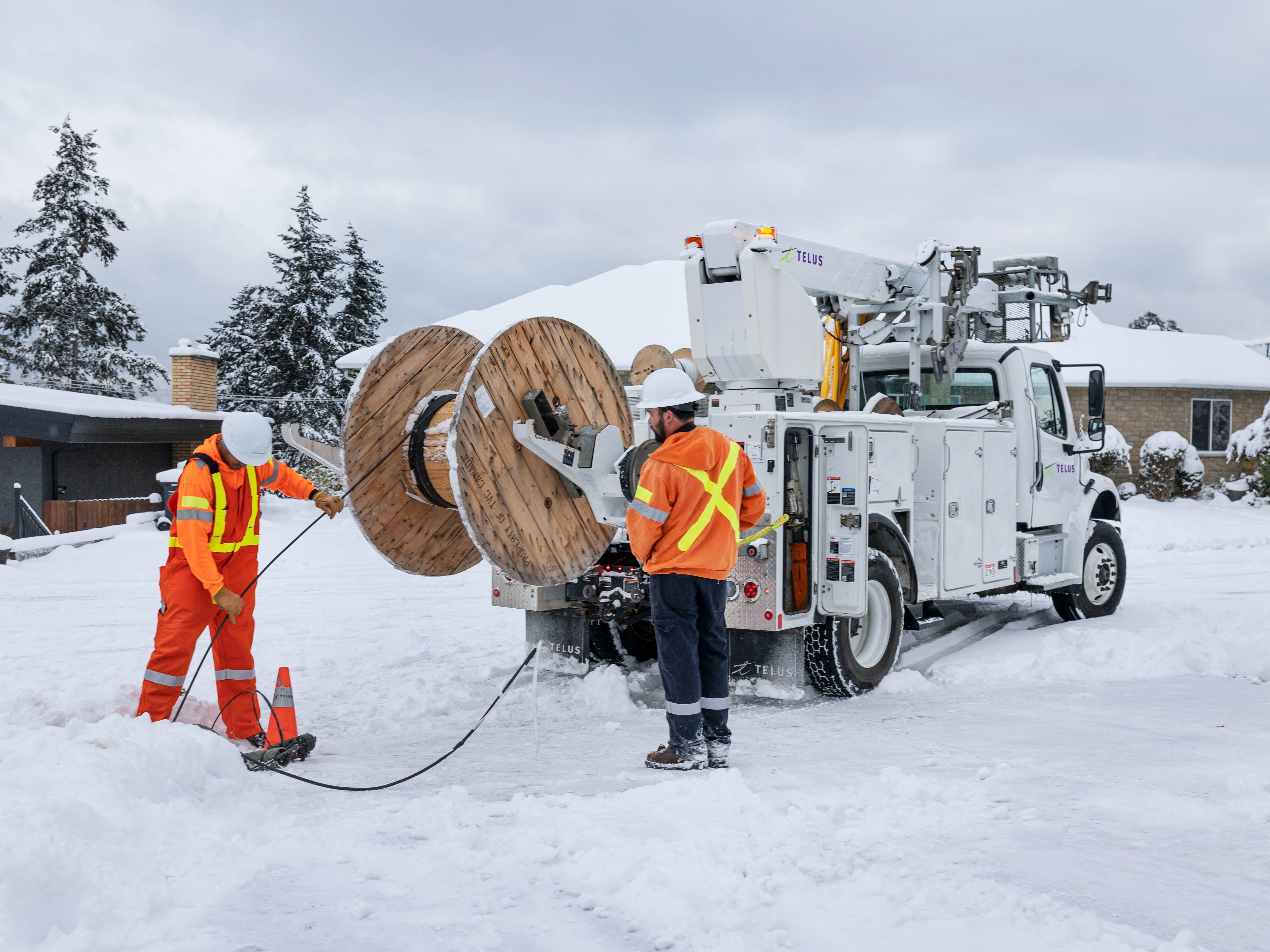
Connecting Canadians
How 5G is making those apps we love even better
(Above) 5G will enable Canadians to automate everyday tasks through smart devices - from connected refrigerators to thermostats - that provide real-time insights for users.
As 5G technology starts to launch more widely, it will have a significant impact on the mobile app industry. It’s exciting to consider: we will see sweeping changes across virtually every aspect of an app user's experience. Think about it, the arrival of 4G is what brought us the app industry. Now, Canadians bank, shop, play and connect on apps everyday. It has become the status quo.
So how does 5G enhance this?
Whether we are building out complex warehouse management systems, smart city and home solutions, intensified gaming experiences, or the ability to use virtual reality to allow retail customers to “try on” glasses or clothing, app-building teams can now immerse themselves in their clients’ needs and end-user challenges to find unique and creative solutions.
We will also see life-changing -- and potentially life-saving -- experiences across core industries such as healthcare, education and gaming/entertainment. 5G connectivity and speeds promise to eliminate the latency barriers to processing data and give valuable user insights in real time.
Government policies have made the digital divide in Canada worse, leaving some communities without optimal internet. Get informed.
Building exceptional mobile app experiences
Currently, the biggest barrier to building out truly exceptional mobile app experiences is connectivity and the challenge of reliable connectivity in everyday consumers’ lives. Whether they are commuting to work, travelling the globe, or simply listening to music on a daily walk, reliable connectivity is critical to a seamless digital experience.
With faster speeds, lower latency and the removal of network connectivity barriers that come with 5G, mobile app builders can now fully optimize consumer experiences to leverage incredible loading speeds, making those dreaded pinwheels and loading progress bars a thing of the past. We are going to see incredible new apps that leverage leading edge video, streaming, augmented and virtual reality (AR/VR), and geolocation-based capabilities.
Mobile apps will now have the ability to give consumers actionable information immediately and without interruption. It will enable the development of sophisticated body sensors and built-in object and voice recognition features that can provide customers with immediate insights like heart rate readings, voice-over text capabilities, and AR overlays in physical environments.
Big changes coming to key industries
While we will likely see changes across most industries as a direct result of the rollout of 5G technology, consumers will likely see these changes manifest themselves in a few key industries initially.
Smart homes, gaming and entertainment
Households with multiple gaming devices, streaming services, connected televisions, home assistant devices and smart home operating systems like thermostats will see vast improvements in overall quality, speed and real-time data insights for users — all without being impacted by the number of devices versus available connectivity. For example, imagine receiving a notification from your fridge that’s detected you're low on milk, and then it schedules a new order for you and has it delivered to your doorstep by drone.
The gaming industry itself will see huge changes as 5G becomes widely available. Gamers are currently desktop-bound due to connectivity issues that severely impact the overall experience of games that rely on streaming, video and multiplayer functionality. This huge change to connectivity will mean gamers will be able to enjoy these state-of-the-art experiences with other players globally, whether they are sitting in their living rooms or riding the subway to work.
Healthcare
The opportunity for advancements with the ability to widely use technology such as AR and VR is huge. Remote communities, currently underserved and severely limited by connectivity, will see significant improvements across the board. Communities will now be able to leverage recognition technology for not only diagnosis, but also for doctors and surgeons in large city centres to assist remotely in medical procedures -- including surgeries -- using VR and AR software.
There will also be a significant impact on accessibility for customers who are currently limited by existing software and their dependence on the availability of connectivity. Consider the experience of a shopper with vision or hearing impairments. With emerging tech such as Optical Character Recognition (OCR) and Voice Recognition software, 5G has the ability to completely transform day-to-day functions from point-of-sale payment and “reading” labels on store shelves to voice-prompted wayfinding like in Google Maps, which will leverage smart-city or even in-store sensors.
Smart cities
Cities large and small will also benefit from the significant gains of a 5G-connected environment. Massive efficiencies and lower latency will mean real-time data collection at key source points.
Take the commuter experience. With the geo-location capabilities offered by 5G, cities can now make informed decisions solely based on user and density data. This certainly means greater efficiency (read: cost savings) across the board, but it also means that citizens benefit from a user data-based schedule that adapts as their needs change and evolve.
Warehouse management
We will also be continuing to work with clients in the transportation, warehouse management and delivery on demand industries, to leverage enhanced connectivity to service key features like geolocation-enabled services and real-time delivery tracking environments that offer customers better accuracy of their orders and deliveries.
Looking ahead
The biggest winner in all of this is the consumer.
Mobile app development teams will now be limited only by their imagination and consumer challenges, knowing that 5G will deliver the lightning-fast connectivity and data processing that currently limits functionality, and feature sets that require large amounts of data processing to deliver intended results.
Removing barriers to connectivity means that those teams building apps can focus on their desire to create exceptional, personalized experiences - from the moment you get in your smart car to drive to work, to a crisp and clear video call with family and loved ones across the globe.
Get ready, Canada. Because the 5G future is here.

Meet the author

Help support connecting communities
Better government policies are needed to ensure better connectivity for Canadians.


